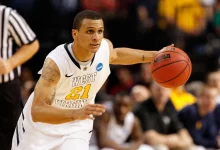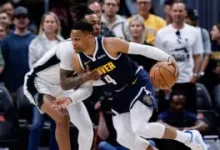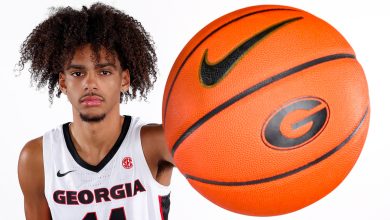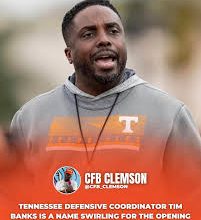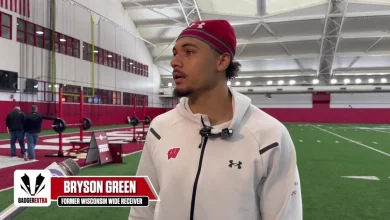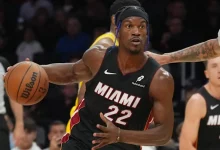Paul Finebaum cautions Arkansas against enforcing NIL buyouts: ‘It’s a bad look’
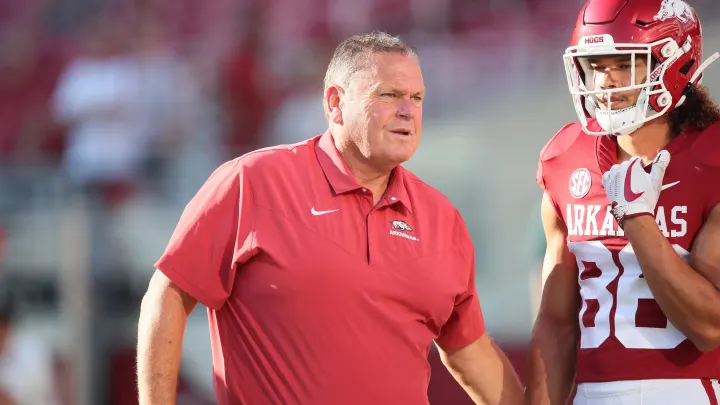
In the ever-evolving landscape of college football, one of the most debated topics in recent years has been the rise of NIL (Name, Image, and Likeness) deals. While NIL has revolutionized the way student-athletes can profit from their names, it has also brought about complexities and challenges, particularly in how these deals are structured, enforced, and executed by universities and athletic programs. One of the most controversial issues that has emerged is the concept of NIL buyouts — a practice where players may be forced to forfeit their NIL deals or negotiate a buyout to transfer or leave a program.
Recently, SEC Network analyst Paul Finebaum weighed in on this issue, specifically cautioning the University of Arkansas against enforcing NIL buyouts. According to Finebaum, implementing such buyouts could have serious consequences, both for the image of the program and the future of college football’s NIL landscape. He called it “a bad look” for the program and warned that it could potentially harm Arkansas’s reputation as it navigates the complex new world of NIL.
As a prominent voice in college sports media, Finebaum’s comments have sparked a broader discussion about the ethics and potential pitfalls of NIL buyouts, as well as the broader implications for college football programs that are still adjusting to this brave new world of student-athlete compensation. In this article, we’ll dive into Finebaum’s warning, explore the potential consequences of enforcing NIL buyouts, and examine the broader issue of NIL’s impact on college football.
What Are NIL Buyouts?
NIL buyouts are an emerging concept within college athletics that, while not yet widespread, have raised alarms among coaches, administrators, and analysts. These buyouts are typically agreements in which a player, who has entered into an NIL deal with a school or external brand, is asked to pay a portion of their NIL earnings if they choose to transfer or leave the program prematurely. Essentially, it can be seen as a form of financial penalty for players looking to exit a school.
The idea behind NIL buyouts is largely financial. Universities, especially those with powerful football programs, may be concerned that the massive NIL deals — often backed by boosters or businesses — are being used as leverage by athletes looking for opportunities at other schools. If an athlete moves to a rival school or a program with better NIL opportunities, the original school could lose out on significant financial investments. Thus, schools might try to enforce buyouts to recover some of the costs associated with these NIL agreements.
For example, if a player has signed a lucrative NIL deal to play for a particular school and then decides to transfer after a short period, the school might seek to recoup some of the money that was invested in the athlete’s promotion and endorsement. This could involve negotiating a buyout of the NIL contract, ensuring that both the player and the school are compensated for the break in the agreement.
While this idea may seem practical from a financial standpoint, it has raised ethical concerns among those who argue that it could be seen as a form of exploitation or coercion, particularly if it restricts the freedom of student-athletes to choose their own path.
Finebaum’s Concerns About NIL Buyouts
When Paul Finebaum cautioned Arkansas against enforcing NIL buyouts, he did so from a standpoint of concern for the broader implications of such a practice on the integrity of college athletics. Finebaum, who has been a longstanding voice in SEC football, explained that enforcing NIL buyouts would damage the perception of the university, creating a situation where student-athletes might feel more like commodities than individuals making decisions based on their best interests.
His central argument is that, in the context of college football, NIL deals should empower student-athletes, giving them the opportunity to profit from their talent and hard work. Forcing players to forfeit part of their NIL earnings or pay penalties if they choose to leave a program undermines this empowerment. Finebaum’s assertion that NIL buyouts are “a bad look” highlights the potential harm they could do to the athlete’s freedom of choice and the university’s reputation.
1. Diminishing the Player’s Agency
One of the most compelling arguments against NIL buyouts, as noted by Finebaum, is that it diminishes the player’s agency in the college football ecosystem. In a landscape where athletes are increasingly being treated as professionals, enforcing NIL buyouts would act as a restriction on their ability to choose the school that best suits their needs or their career aspirations. The idea that a player could be financially penalized for transferring or pursuing other opportunities runs counter to the principles of freedom of choice and mobility that have been central to collegiate sports.
College football, particularly within the SEC, has become highly competitive. Players move from school to school for various reasons, whether it be for better playing time, a more favorable coaching staff, or, in some cases, better NIL opportunities. Forcing players into financially burdensome buyout agreements could deter them from seeking a better fit for their development or career prospects. It could also alienate recruits who may be hesitant to sign with programs where their NIL opportunities are limited or contingent on their staying at the school for a specific period.
Finebaum believes that enforcing NIL buyouts could have a chilling effect on recruitment, making some schools appear less appealing to athletes who are looking for the freedom to make decisions that align with their personal and professional goals.
2. Potential for Exploitation
Another key concern that Finebaum raised regarding NIL buyouts is the potential for exploitation. While NIL was introduced to provide athletes with a fair opportunity to profit from their likeness, it also opened the door for unscrupulous actors, including boosters and schools, to manipulate the system for their own benefit. Enforcing NIL buyouts could be seen as a way for schools to impose undue financial pressures on athletes, turning the NIL system from a tool of empowerment into one of control.
In particular, Finebaum warned that such practices could disproportionately affect athletes who come from less privileged backgrounds or those who are new to the financial complexities of NIL. Some players might feel compelled to remain at a school or accept terms they would otherwise find unfavorable in order to avoid having to pay out on a buyout. This situation could lead to an imbalance of power between the school and the athlete, undermining the very purpose of NIL in the first place.
3. Long-Term Reputation Damage for Schools
Finebaum also cautioned that enforcing NIL buyouts could harm a school’s long-term reputation, especially in the eyes of recruits and the public. Universities that take a hardline approach to enforcing buyouts may come across as prioritizing their financial interests over the welfare of student-athletes. This could alienate potential recruits who are wary of entering into a system that may limit their freedom or treat them as a financial commodity rather than a student and athlete.
The optics of enforcing NIL buyouts could also invite negative publicity, further tarnishing the school’s image. In an era where player empowerment is increasingly celebrated, schools that impose buyouts might be viewed as trying to exploit NIL as a means of maintaining control over their players rather than fostering a positive and supportive environment for athletes.
The Bigger Picture: NIL and the Future of College Football
The controversy surrounding NIL buyouts in college football represents a broader challenge that the sport faces as it adapts to the new NIL landscape. NIL deals have introduced new opportunities and challenges for schools, coaches, and players alike. While NIL has enabled athletes to profit from their personal brands, it has also created a gray area where schools and athletic programs must navigate issues of fairness, transparency, and influence.
As the NCAA continues to grapple with how to regulate NIL, the rise of NIL buyouts represents a potential danger to the principle of fairness and transparency. The system could be taken advantage of by programs looking to leverage NIL as a tool to control athletes’ decisions rather than empower them. Finebaum’s warnings underscore the fact that NIL is still in its infancy, and the regulations and policies surrounding it are still evolving.
In many ways, the conversation about NIL buyouts also points to the broader issue of how college football will balance player empowerment with the interests of universities and athletic departments. College football is a multi-billion-dollar industry, and the introduction of NIL has only added another layer of complexity. If schools start enforcing NIL buyouts, it could create a domino effect where other schools adopt similar practices, potentially leading to a new set of ethical dilemmas for the sport.
Paul Finebaum’s cautionary comments about NIL buyouts for Arkansas are a reminder that as college football navigates the evolving NIL landscape, it must prioritize the well-being and autonomy of student-athletes. While NIL has opened up new revenue streams and opportunities for athletes, it has also brought about new challenges that need to be addressed with care and consideration.
Enforcing NIL buyouts may seem like a practical financial solution for some programs, but as Finebaum rightly pointed out, it’s a “bad look” that could harm the very principles of player empowerment that NIL was meant to protect. As the world of college athletics continues to evolve, it’s important for schools, coaches, and administrators to focus on creating a system that balances the needs of the athletes with the long-term health of the sport, ensuring that the players remain at the heart of the college football experience.

